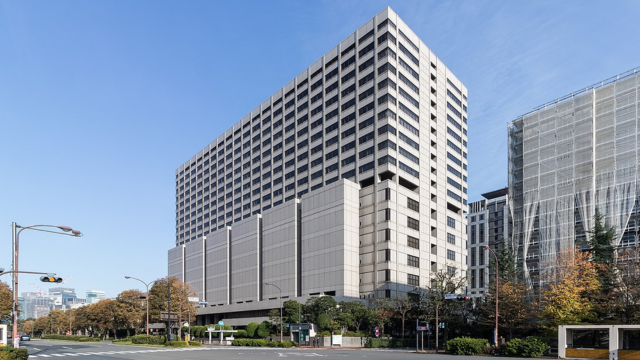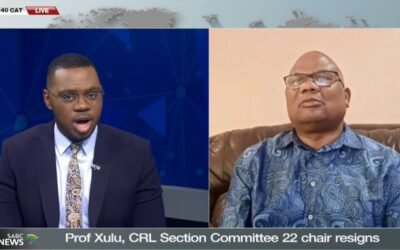Two Family Federation believers were allowed to testify before the High Court. They represent the thousands of Church members who are being slandered and discriminated against.
by Massimo Introvigne

It took a tsunami of accusations, a media frenzy, and a government bent on dissolution—but finally, on October 21, two members of the Family Federation for World Peace and Unification (formerly the Unification Church) were allowed to speak in the High Court appeal proceedings contesting the first-degree verdict of March 25 ordering the dissolution of the Church.
Two. Out of the thousands who were prepared to testify. And what they said should echo through the halls of the Tokyo High Court like a bell tolling for justice.
A male employee in his 30s, a second-generation member, stated that he embraced happily and voluntarily his parents’ faith. He mentioned the discrimination and slandering Church members are suffering after the Abe assassination, and said these will worsen if the dissolution order will be confirmed. “If the dissolution order is finalized, I will lose my job. My experience as a church employee could lead to discrimination and make it difficult to find new employment, which greatly concerns me.”
A Korean woman in her 50s told of her missionary work, the loving relationships she had developed with many Japanese, and her beautiful marriage with a Japanese fellow believer. She said she established good relations with her husbands’ parents and relatives. She mentioned that she happily made donations to the Church in total freedom. She reported discriminatory treatment after the Abe assassination and expressed anxiety about the dissolution: “I’m afraid that if the church, which is also our community, disappears because of the dissolution order, I’ll be left isolated.”
These statements, sincere and straightforward, carry the unmistakable sound of truth. They stand in stark contrast to the parade of alleged victim testimonies—some of which may not even be genuine. In fact, two members of the Family Federation and two victims of documents’ forgery filed a lawsuit against Japan’s Ministry of Education, Culture, Sports, Science and Technology (MEXT), claiming that some of the statements it filed were fabricated. The public announcement of the lawsuit, made on September 5, was a bold move to defend not just the Church’s existence, but the principle of religious freedom itself.
As it happens in all religions, some former members may be unhappy with their experience and now feel like victims. Other “victims” are just fabricated. The testimonies invited the High Court and the public opinion to consider that there are hundreds of thousands of real victims. These are the current members and their children who, with the dissolution of the Church, will be discriminated against in the workplace—and may even lose their jobs—slandered in the media, ridiculed by acquaintances, and bullied at school. This discrimination has already started.
And the world is watching. The United Nations has expressed serious doubts about Japan’s actions, warning that the dissolution of the Unification Church may violate international standards on religious liberty. When the UN starts raising eyebrows, it’s not a minor procedural hiccup—it’s a flashing red light.
Yet the government presses on, seemingly deaf to the pleas of believers and blind to the broader implications. When a state begins to pick and choose which faiths are acceptable, it sets a dangerous precedent.
We celebrate these two brave witnesses. Their voices—though few—pierce the fog of prejudice and misinformation. They remind us that behind every headline and courtroom drama are real people with real beliefs and dignity.
May the Tokyo High Court listen. May it hear not just the clamor of politics, but the quiet conviction of faith. And may it remember that justice, like truth, is not served by silencing the minority—but by protecting it.

Massimo Introvigne (born June 14, 1955 in Rome) is an Italian sociologist of religions. He is the founder and managing director of the Center for Studies on New Religions (CESNUR), an international network of scholars who study new religious movements. Introvigne is the author of some 70 books and more than 100 articles in the field of sociology of religion. He was the main author of the Enciclopedia delle religioni in Italia (Encyclopedia of Religions in Italy). He is a member of the editorial board for the Interdisciplinary Journal of Research on Religion and of the executive board of University of California Press’ Nova Religio. From January 5 to December 31, 2011, he has served as the “Representative on combating racism, xenophobia and discrimination, with a special focus on discrimination against Christians and members of other religions” of the Organization for Security and Co-operation in Europe (OSCE). From 2012 to 2015 he served as chairperson of the Observatory of Religious Liberty, instituted by the Italian Ministry of Foreign Affairs in order to monitor problems of religious liberty on a worldwide scale.



